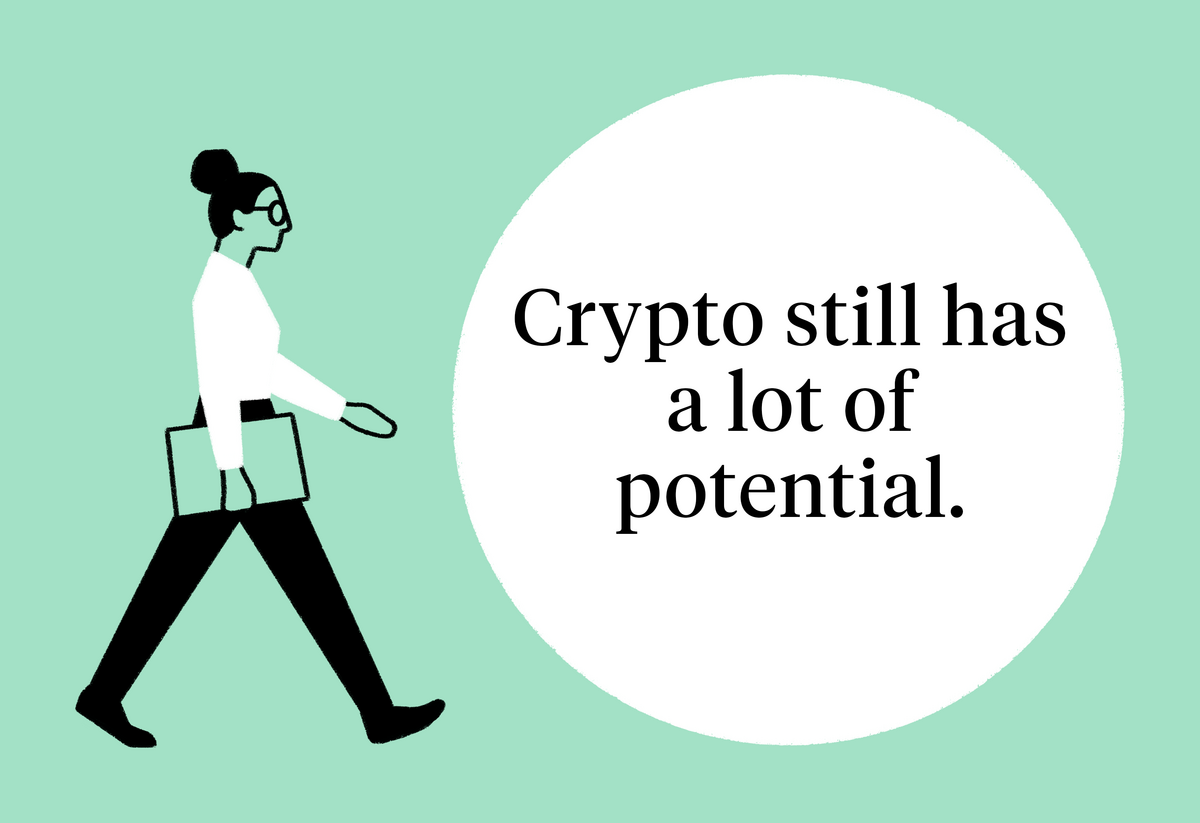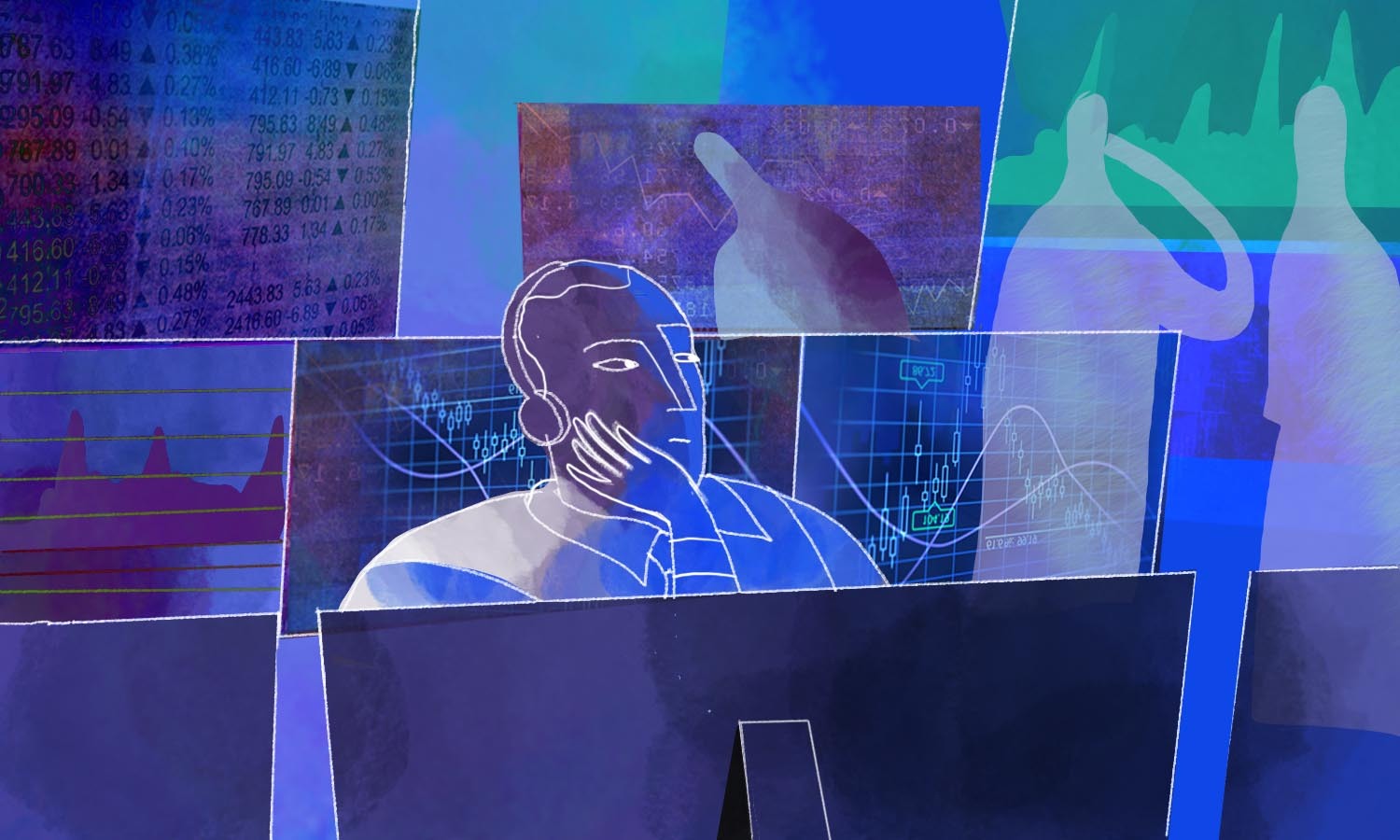Finance & Accounting Nov 18, 2022
Podcast: What the FTX Meltdown Means for the Future of Crypto
The implosion of the crypto exchange has sent the industry reeling. We dig into what happened and whether cryptocurrency, as a concept, can weather the storm.

The unraveling of FTX—the cryptocurrency exchange—has dominated the headlines.
Sarit Markovich, a clinical professor of strategy at Kellogg who studies IT markets and fintech, says there are bigger lessons to glean here.
“There is definitely a need for regulation,” Markovich says, adding that it’s likely to come sooner, rather than later, now. What would that mean for the future of crypto?
In this episode of The Insightful Leader, Markovich breaks down the FTX debacle and how it fits into the broader crypto landscape.
Podcast Transcript
Laura PAVIN: Hey everybody, it’s Laura Pavin. Welcome to the next season of The Insightful Leader podcast! Let’s talk about FTX. FTX, you might know, is a cryptocurrency exchange. You might also know that it’s collapsed. But maybe, like a lot of people, your knowledge about it stops there.
Well, we roped in Sarit Markovich. She’s a clinical professor of strategy at Kellogg, and she studies IT markets and fintech. This episode, she helps us wrap our heads around the collapse of FTX—and how it fits into the broader cryptocurrency landscape. And she tells us what FTX’s fall could mean going forward.
That’s next.
Quick note: We didn’t initially intend for this to be a podcast when we recorded this, so we didn’t fully control for some of the background noises you’re about to hear. We apologize for that in advance. But definitely check out the Q&A we did with Markovich on our website at insight.kellogg.northwestern.edu.
Okay, back to the show.
So, first off: What, exactly, is FTX? Markovich explains.
Sarit MARKOVICH: FTX is a centralized exchange. So when you think about FTX, FTX is just the New York Stock Exchange. However, instead of letting you buy and sell stocks of large organizations, it lets you buy and sell crypto.
PAVIN: There are other centralized exchanges in the crypto world, like Coinbase and Binance, but FTX is a big one, valued earlier this year at about $32 billion. And people trade all manner of cryptocurrencies on it, like BitCoin, DogeCoin, you name it.
And this part is key: because FTX is a centralized exchange, it actually holds, and has access to, people’s money. Like how a bank would.
MARKOVICH: So when we think about something that is centralized, basically that means that there is a central authority or there is a large or small organization behind it that’s making decisions and also has access to whether it’s your data or your money or whatever it is—because it all kind of goes to the organization. And then the organization is going to perform the activities that you want it to perform.
PAVIN: But there are also decentralized exchanges—and a lot of decentralized cryptocurrencies.
MARKOVICH: When you’re thinking about decentralized projects, no one holds your money, no one holds your information, your data—it is you who decides. You have your own wallet where you’re keeping everything that you want to keep. And then if you want to perform any kind of transaction, then you are the one who’s authorizing it and no one else is going to have access to it. They need your password, they need your keys, in a way, in order to access it. So Bitcoin is completely decentralized and it is being exchanged and traded on centralized exchanges. But if you want to just use Bitcoin as a payment, you can use it in a decentralized way. If you are just using your wallet and transferring money from one wallet to the other, you don’t need any other third party. That’s the idea of decentralization.
PAVIN: OK! Now, FTX also happens to have its own cryptocurrency called FTT.
MARKOVICH: Basically, if you were holding their token, then you would get a discount, for example, on some of the fees. And also because it was considered to be such a successful company, then there was a lot of demand for this token. So the value of this token was going up, so people were trading it as you would typically trade any kind of stock or crypto.
PAVIN: Here’s where things get tricky. The CEO of FTX, Sam Bankman-Fried—who happens to be a big celebrity in the crypto world, as well as an influential philanthropist—also co-founded a hedge fund called Alameda Research. Alameda made a lot of money finding inefficiencies in the crypto market and exploiting them.
But in early November, CoinDesk, a publication that covers digital currencies, realizes that Alameda has this giant position in FTX—and specifically in these FTT tokens. Which is kind of weird: like, if these are really two independent companies, then why not … some other currency. Any other currency? And it’s actually more than just weird, because Alameda owns such a large share of the overall FTT tokens, that if it were to sell them, the price of FTT would collapse. Which would be catastrophic for Alameda and FTX.
So upon learning this, the CEO of Binance, an even bigger rival crypto exchange that holds a lot of FTT, sees an opportunity to really hurt FTX here. And so, Binance announces its intention to sell all of its FTT tokens, knowing it would kick off this downward spiral of FTX.
MARKOVICH: And then it was clear that it’s going to have a huge effect on the price of FTT, and that’s when everything is going to start collapsing. So that’s what actually started everything. That’s tough when people realized, okay, they actually do not really have the funds to support it.
PAVIN: There’s more to the story: Binance offered to buy FTX to stabilize the exchange, but then took one look at its books and exited the deal.
Because it seems there were other problems, too: Alameda had also really overextended itself in recent months, taking out loans to invest in a bunch of other crypto ventures. And according to Markovich, a lot of these ventures were required to keep their money with FTX, money that was then lent back to Alameda in order to invest in other companies. So the company was very overleveraged, with a lot more liabilities than people understood.
The specifics aren’t super important, but somewhere along the line, FTX loaned Alameda a lot of FTT to make some of these risky investments using its own customers’ funds. They apparently did this without these customers’ knowledge or permission—which Markovich likens to fraud.
We will learn more about exactly what happened when in the coming weeks. But we do know this: the collapse has been really messy. It’s not totally clear when FTX’s hundreds of thousands of customers will get any money back—if they ever do.
But beyond being a tale of one company’s fraudulent behavior, what does this all mean? Insight Editor in Chief Jess Love and Markovich got deep into it for us. I’ll let them take it from there.
Jess LOVE: A lot of cryptocurrencies have collapsed in the past year. I was wondering if you could contextualize this for us. How are investors even feeling about crypto? Is this kind of an existential crisis, if you can’t trust the currencies? If you’ve got Terra Luna losing, what, 90 percent of its value, and if you have the exchanges that are fraudulent, is there even a future for crypto?
MARKOVICH: I definitely believe that there is a future for crypto, and in a way even those events are going to benefit the crypto world because there is definitely a need for regulation, and everybody is saying that. And trying to get this regulation as fast as possible is going to be helpful. It’s true that now it’s going to be probably stricter than otherwise. But in a way, regulation that’s going to help us stop with all of these fraudulent activities, and all of those Ponzi schemes that are happening, is really going to benefit the entire industry. And I think that there are two things that are happening. One of them is really projects that are bad projects and are not built on a good economic idea, or have nothing behind them. And these are the projects that we want to get out of the market, and we don’t want them and we never wanted them in the market.
LOVE: Would these be just purely speculative-type things? Like, “Hey, I’ve got this new token. It’s called ‘Jess token.’ Get in now on the ground floor where you can get it cheap?”
MARKOVICH: Exactly. So definitely there is nothing behind it. But then you have Ethereum, where this is actually a token that is being used in order to perform different activities on the Ethereum network. And the Ethereum network is actually performing a lot of cool things in terms of allowing for different types of transactions and different types of trades that are actually creating value. So I think that the problem is that a lot of the retail investors or amateur investors that are just looking for those very quick returns, they many times first do not know how to distinguish between decentralized and centralized. And also [they are] not doing the due diligence and learning and understanding what exactly is behind this coin. What exactly is the value of a specific token, and do I actually believe that it is going to create value that is going to be able to grow, that is going to be able to sustain some kind of a value?
The sad part is that even when you think about the VCs, many of them do not necessarily have a good understanding of this entire industry and are also getting it wrong. Now with FTX, it was something completely different. If FTX was not performing fraudulent activities, then it’s a great investment and it’s a great project. So here you cannot really, in a way, blame the market. This is where actually the regulator will have to come in.
LOVE: So, is it kind of a community divided right now in terms of, you’ve got some members calling very strongly for regulation by potentially a central bank, and on the other hand, you have other people in the community that are like, “No, no, no, we just need better crypto workarounds”?
MARKOVICH: Yeah, exactly. So it is very divided and there are those trying to build a parallel ecosystem that is decentralized and not regulated. And there are those who say that actually regulation is going to allow us to make it mainstream. And once it’s mainstream, you’re going to be able to do much more than what you’re doing now because you’re going to have more funding; you’re going to have more clients. There’s going to be overall a much larger ecosystem.
But a lot of the decentralized projects felt that this is going to hurt them because when you’re thinking about trading in crypto for example, there is a lot of high-frequency traders in a way. So there’s a lot of front-running going on and a lot of back-running going on that is going to be illegal if the market is regulated. So in a way, you are taking away a lot of the opportunities that are out there, and this is why many are against it.
But what’s interesting is what Binance is trying to do now. So Binance is a centralized exchange—the largest centralized exchange in crypto—and they are against any kind of regulation. However, they’re trying to create some kind of a self-regulated industry. And basically, they’re trying to implement, for example, that you’re going to show your reserves. You’re going to prove that you have the reserves that you claim that you have, and that means that each and every one of your tokens is backed by a certain amount or the equivalent value that it should be backed by if it’s going to be traded to dollars or if it’s going to be traded to any other fiat currency. So they’re thinking about proof and of reserve.
But another interesting initiative that they have now is that when you’re thinking about a traditional company or a bank that has a liquidity issue, meaning that they actually do have the assets, however, the assets are not liquid enough. Then what they can do is they can go to the Fed and they can ask the Fed for a loan and the Fed is going to give it to them, assuming that they really kind of like that their assets are legit. And it’s more about: the assets are just not liquid. What Binance is trying to do now is to create a pool of funds for projects in times of liquidity problems so that if you have, again, a liquidity problem, and we’re going to be able to get all the information, and you can prove that it’s more about liquidity and it’s not about reserves that are not there—then this pool is going to lend you the money to do that. So in a way, trying to create some kind of a crypto pool for that.
It’s interesting because it just shows that some of the regulation and some of the traditional financial markets’ processes that are there to secure the market are starting to be copied and imitated. However, they’re trying to do that in a more decentralized way. But then again, when you think about this pool, there’s nothing decentralized about it. It’s going to be one central authority that decides whether to give the funds or not.
LOVE: So, stepping back a little bit, how would you envision this kind of particular implosion affecting the future of crypto? How is this changing the trajectory?
MARKOVICH: So I think that in a way, you had lots of collapses in the last year, but many felt that this was because the projects were just not legit. Here is more of a project that was really performing fraudulent activity. And again, there was this lack of transparency. With most of the other projects, there was this transparency. If you wanted to know more about Luna and do the analysis, then you could. And then you could have figured out that when the market is high, they’re going to do great, when the market is down there or not.
With FTX, you could not really see what they’re doing with the funds. So I think that what that means is that it is definitely going to drive a lot of those who were on the edge of being interested, coming in—it’s going to slow down a lot of the demand. VCs are not going to be as likely to invest. So a lot of the funding is going to go away. However, it also means that regulation is going to be coming sooner rather than later. It is going to be stricter. And I think that my concern is more about the regulator really understanding that the regulation for centralized and decentralized projects should be different. You don’t want to just regulate the market and think about crypto as crypto. I think that they are different types that you need to regulate in a different way. And the question is whether now when you are trying to go really quickly and regulate this market, whether we might be missing on that. And then just putting too strict rules that are not going to allow a lot of this DeFi world to actually be as innovative.
LOVE: I want to just ask you one more question: If I don’t think I care about crypto at all, can you give me an example of one of those projects that you think is really neat and actually has the potential to have a cool impact on the world, the physical world, that you think DeFi is making possible?
MARKOVICH: Absolutely. So first, I think that the decentralized exchanges are really cool. So think about Sushi swap. I think that the fact that I can actually buy a stock—think about it at crypto as a stock—I can buy a stock from you without going through a broker and without paying all of those high fees and just making everything, in a way, more liquid. I think that that’s great.
And another project that I believe is also great is MakerDAO. And what they do is that they give loans that are collateralized but do not require any kind of AML KYC, meaning that you don’t need to prove that you have a lot of money, or you don’t have a lot of money, or who you are, or what you are. You need the money that I’m going to lend to you, but you have to put collateral. So in a way it’s true that, again, this is also being gamed and there are ways for them or there are attempts to kind of try and limit the type of gaming that is going on. But just as a concept, the concept that you have just so many borrowers that find it hard to kind of borrow money even though they can’t be of good credit, being able to do that using DeFi, I think that that’s going to be another one.
And then finally everything that is about cross-border payments, that is, it is such an issue and it’s such high fees. And then with crypto, you can do it just kind of so easily.
PAVIN: That does it for us on this special, impromptu episode! We hope you have a better sense of what’s going on in the crypto world and how FTX—and other players—fit into it.
We’ll be back in a couple of weeks with another episode of The Insightful Leader.
[CREDITS]
This episode of The Insightful Leader was written by Laura Pavin and Jess Love. It was produced by Laura Pavin, Jess Love, Emily Stone, Fred Schmalz , Maja Kos, and Blake Goble. It was mixed by Laura Pavin. Special thanks to Sarit Markovich. As a reminder, you can find us on iTunes, Google Play, or our website. If you like this show, please leave us a review or rating. That helps new listeners find us.



